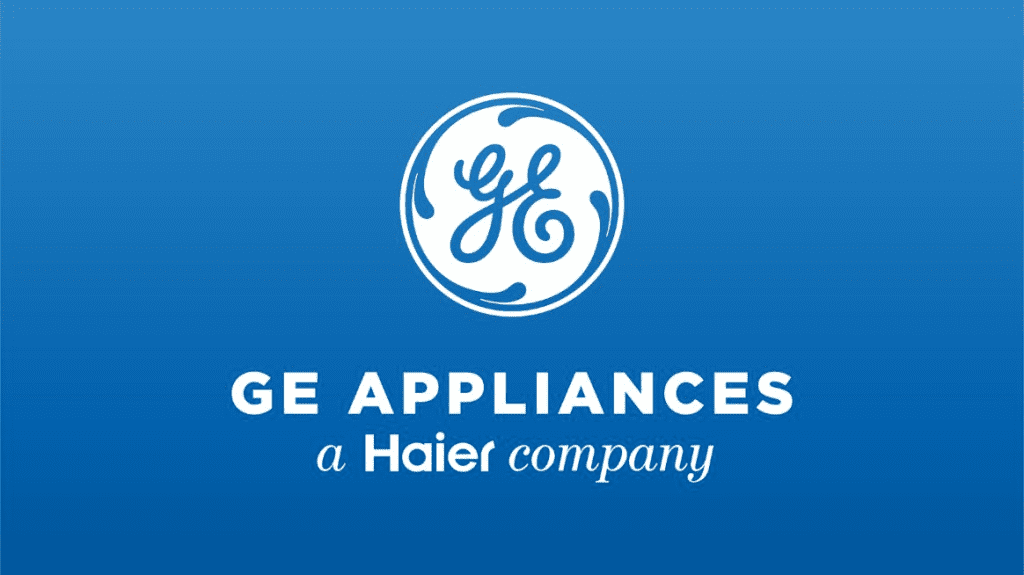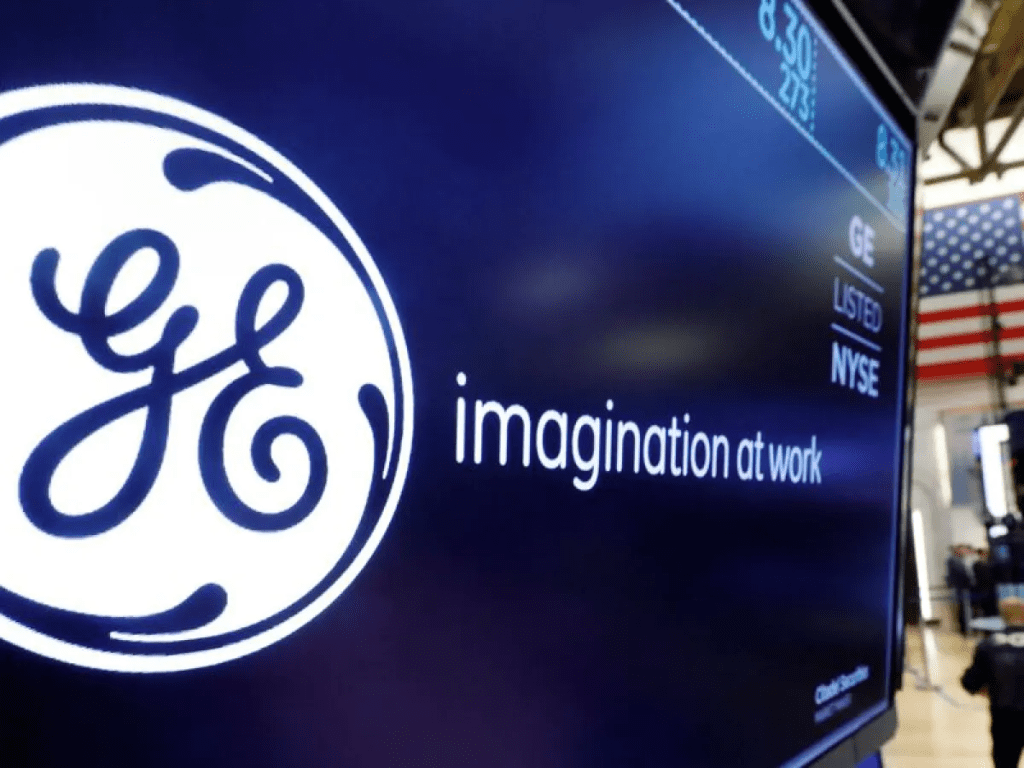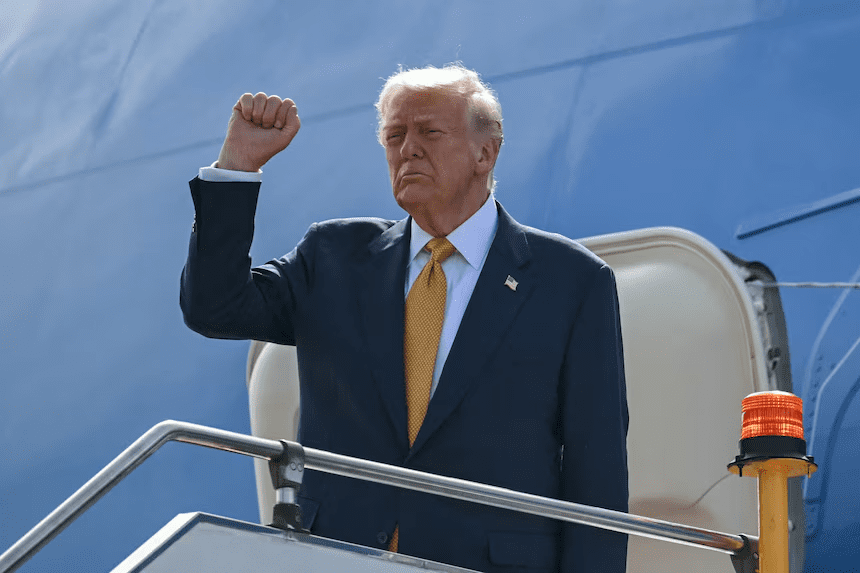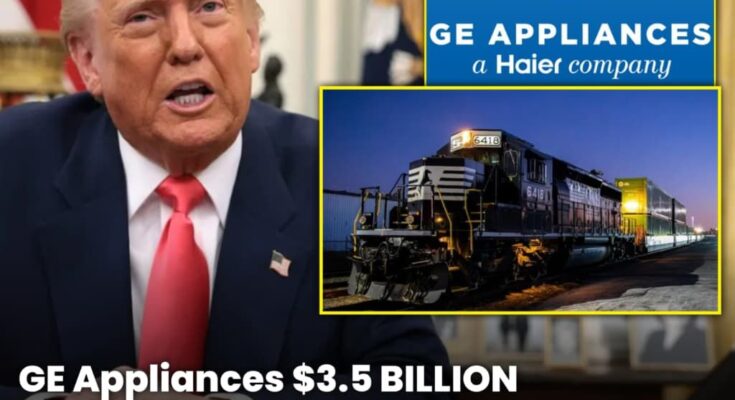GE Appliances Invests $3.5 Billion in U.S. Manufacturing, Launches Major Rail Line with Norfolk Southern and Union Pacific — a Landmark Win for Trump’s Reshoring Agenda
GE Appliances just delivered one of the biggest wins for American manufacturing in years — and it’s a story that perfectly encapsulates the quiet but powerful reshoring wave sweeping across the country. On October 27, 2025, the company unveiled a $3.5 billion investment in domestic production, a move that has already sparked the launch of a new American rail line in Louisville, Kentucky, operated by industry giants Norfolk Southern and Union Pacific. The project, which will transport GE-made goods nationwide, marks a defining moment for U.S. industry and reinforces a message that former President Donald Trump has been championing since his first term: America can and should make its own products again.

For years, critics doubted that large-scale U.S. manufacturing could return, calling the idea of reshoring “a political slogan, not an economic strategy.” But the numbers tell a different story. GE’s expansion is creating more than 1,000 new jobs across five states and injecting nearly half a billion dollars directly into Louisville — long known as the “appliance capital of the U.S.” The company’s retooled production lines will build high-demand items like washers, dryers, and refrigerators, with the Louisville plant now serving as the centerpiece of a renewed domestic supply chain.
The newly launched rail corridor is a key part of that strategy. Norfolk Southern and Union Pacific have partnered to connect GE’s distribution network across the Midwest and South, slashing shipping times and logistics costs that once made offshore production more appealing. The rail line, spanning several states, is designed to move finished appliances from Kentucky to distribution centers in record time, a move that analysts say will help offset decades of dependency on overseas imports.

Industry experts now agree: the trend toward reshoring is accelerating, not slowing. Over the past two years, dozens of companies have announced plans to bring factories back to U.S. soil — from semiconductors in Arizona to steel plants in Ohio. But GE’s announcement stands out for its scale and symbolic power. It represents a direct response to years of outsourcing and the hollowing out of middle-class jobs that once defined American prosperity.
The company’s leaders credited their decision to improved economic conditions and public policies that favor domestic growth. While not officially tied to Trump’s current administration, the timing and tone of GE’s investment echo the same “America First” economic priorities that gained traction under his leadership. Trump himself has long pointed to manufacturing as a key indicator of national strength, repeatedly warning that America’s dependence on foreign production would one day come at a steep price. Now, with new plants opening and rail lines expanding, his prediction looks increasingly prescient.

Louisville’s new rail hub is more than just a transportation link — it’s a statement of intent. GE’s commitment to the project as an anchor client gives it immediate credibility and momentum. The partnership between Norfolk Southern and Union Pacific also carries strategic importance: it’s the first major joint rail initiative of its kind since their merger proposal earlier this year, which aimed to create a seamless transcontinental network. Together, these efforts form the backbone of a revitalized American manufacturing system designed to compete globally without relying on Asia for essential goods.
Critics may argue that reshoring won’t solve every challenge — labor shortages, inflationary pressures, and energy costs remain real concerns. But for millions of Americans, the sight of new factory jobs opening and freight trains hauling “Made in USA” appliances feels like more than an economic win; it’s a restoration of national confidence. The symbolism of GE’s blue logo on freshly built American trains is hard to miss — a sign that the country’s industrial base is no longer fading but fighting back.

As one Louisville plant worker told reporters during the launch, “It feels like we’re building the future again — right here, not overseas.” That sentiment captures the essence of what’s happening across the nation: a revival rooted in hard work, pride, and a belief that America can make things the world wants once more.
For now, GE’s $3.5 billion bet on U.S. manufacturing is being hailed as one of the boldest corporate moves of the decade — and one that validates years of warnings from Trump and his supporters about the dangers of offshoring. Manufacturing is officially re-shoring, and this time, it looks like it’s here to stay.

